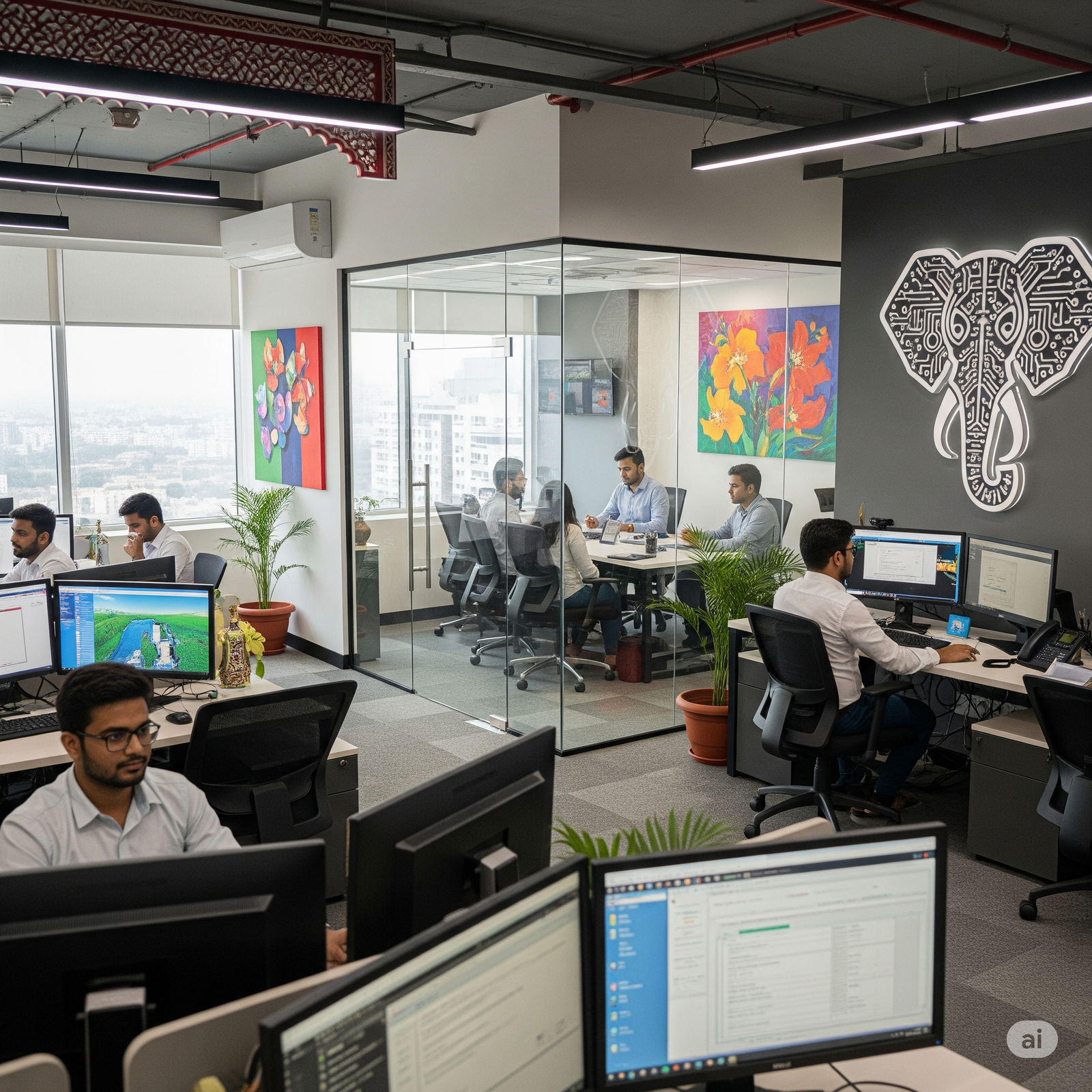Introduction
India has emerged as the world’s largest hub for software developers, and more importantly, it continues to power global IT services, startups, and cutting-edge tech innovations. With over 5 million software professionals, Indian developers are not only at the forefront of AI and cloud computing but also leading in blockchain and enterprise software development.
In this comprehensive guide, we will explore:
✔ First, why Indian developers are in high demand globally
✔ Next, the top skills and technologies they excel in
✔ Additionally, salary trends and career growth opportunities
✔ Finally, challenges and future trends in India’s IT workforce
Whether you’re a business looking to hire Indian developers, a tech professional seeking career insights, or simply curious about India’s IT dominance, this guide covers everything you need to know.
Why Are Indian Software Developers So Popular Globally?
1. Largest Talent Pool in the World
- To begin with, India produces 1.5 million engineering graduates annually.
- Furthermore, over 5 million software professionals work in IT, making India the #1 country for tech talent.
- Notably, cities like Bangalore, Hyderabad, Pune, and Chennai have become major IT hubs.
2. Cost-Effective & High-Quality Work
- One major advantage is that Indian developers offer competitive salaries (30-50% lower than the US/EU).
- Moreover, they have strong expertise in full-stack development, AI, cloud, and cybersecurity.
- As a result, the time zone advantage allows for 24/7 project support (follow-the-sun model).
3. Strong English Proficiency & Communication
- It’s worth noting that India is the second-largest English-speaking country (after the US).
- Consequently, this enables smooth collaboration with US, UK, and European clients.
4. Government Support for IT Growth
- On top of that, initiatives like Digital India, Startup India, and Skill India boost tech education.
- In addition, tax benefits for IT companies under SEZ (Special Economic Zones) make India even more attractive.
Top Skills of Indian Software Developers
Indian developers dominate in both traditional and emerging technologies:
1. Programming Languages
- First, JavaScript (React, Node, Angular) is in high demand for frontend & backend.
- Second, Python leads in AI/ML, data science, and automation.
- Third, Java & Kotlin are preferred for Android app development.
- Lastly, C# & .NET are widely used in enterprise software.
2. Cloud & DevOps
- For instance, AWS, Azure, Google Cloud certifications are highly sought after.
- Similarly, Docker, Kubernetes, CI/CD pipelines adoption is growing rapidly.
3. AI & Data Science
- Specifically, Machine Learning, NLP, Computer Vision skills are in demand.
- Likewise, Big Data (Hadoop, Spark, SQL) expertise is valuable in analytics-driven companies.
4. Blockchain & Cybersecurity
- In particular, Ethereum, Solidity, Hyperledger skills are rising.
- At the same time, ethical hacking and penetration testing talents are increasingly needed.
Top Companies Hiring Indian Developers
1. Tech Giants (MNCs)
- For example, TCS, Infosys, Wipro are mass recruiters of entry-level engineers.
- In contrast, Google, Microsoft, Amazon hire for specialized AI, cloud, and R&D roles.
- Meanwhile, Accenture, Capgemini focus on enterprise IT consulting.
2. Indian Unicorns & Startups
- On one hand, Flipkart, Ola, Zomato need full-stack & mobile developers.
- On the other hand, Razorpay, Paytm, PhonePe focus on fintech-driven hiring.
- Additionally, Unacademy, Byju’s are scaling tech teams in edtech.
3. Global Remote Work Opportunities
- Alternatively, US/EU companies hire remotely (GitLab, Toptal, Turing).
- Similarly, freelance platforms (Upwork, Fiverr, Toptal) offer opportunities.
Challenges Faced by Indian Developers
1. High Competition & Skill Gaps
- Primarily, there’s saturation in entry-level jobs (many engineers, fewer high-paying roles).
- Therefore, upskilling (AI, cloud, DevOps) is crucial to stay relevant.
2. Work-Life Balance in IT Sector
- Often, long hours in service-based companies (Infosys, Wipro) are required.
- Likewise, startup culture can be demanding (fast-paced, high pressure).
3. Outsourcing vs. Product-Based Work
- Traditionally, service companies (TCS, Wipro) focus on outsourcing.
- However, product companies (Google, Microsoft) offer better pay & innovation.
Future of Indian Software Developers (2024 & Beyond)
1. AI & Automation Will Reshape Jobs
- In the near future, low-code/no-code tools will reduce manual coding needs.
- Thus, developers must learn AI integration to stay competitive.
2. Remote & Hybrid Work is the New Norm
- Going forward, global companies will increasingly hire Indian talent remotely.
- At the same time, the freelancing & gig economy will keep growing.
3. Specialization Over Generalization
- In the long run, niche skills (AI, blockchain, cybersecurity) will pay more.
- Nevertheless, full-stack developers will remain in demand, but deep expertise will win.
How to Hire Indian Developers?
1. Job Portals (Naukri, LinkedIn, AngelList)
- Ideally, these are best for full-time hires.
- Typically, you can filter by skills, location, experience.
2. Freelance Platforms (Upwork, Toptal, Turing)
- Alternatively, these work well for project-based developers.
- Particularly, they’re good for short-term contracts.
3. IT Outsourcing Firms (TCS, Infosys, Accenture)
- Especially, these are best for large-scale enterprise projects.
- Namely, they offer managed services & dedicated teams.
Conclusion: Indian Developers – The Backbone of Global Tech
Indian software developers continue to lead the world in IT services, AI innovation, and cost-effective tech solutions. With a strong talent pool, English proficiency, and government support, India remains the top destination for software development.



